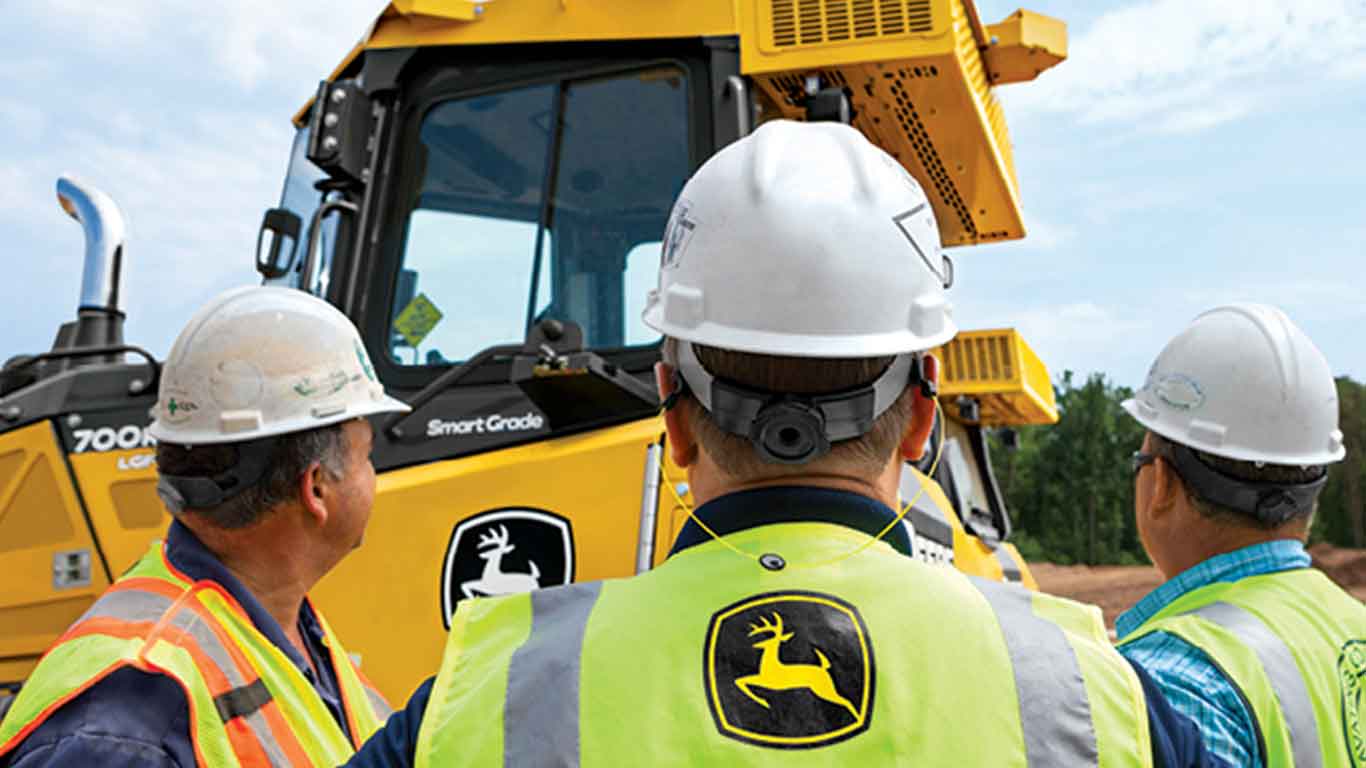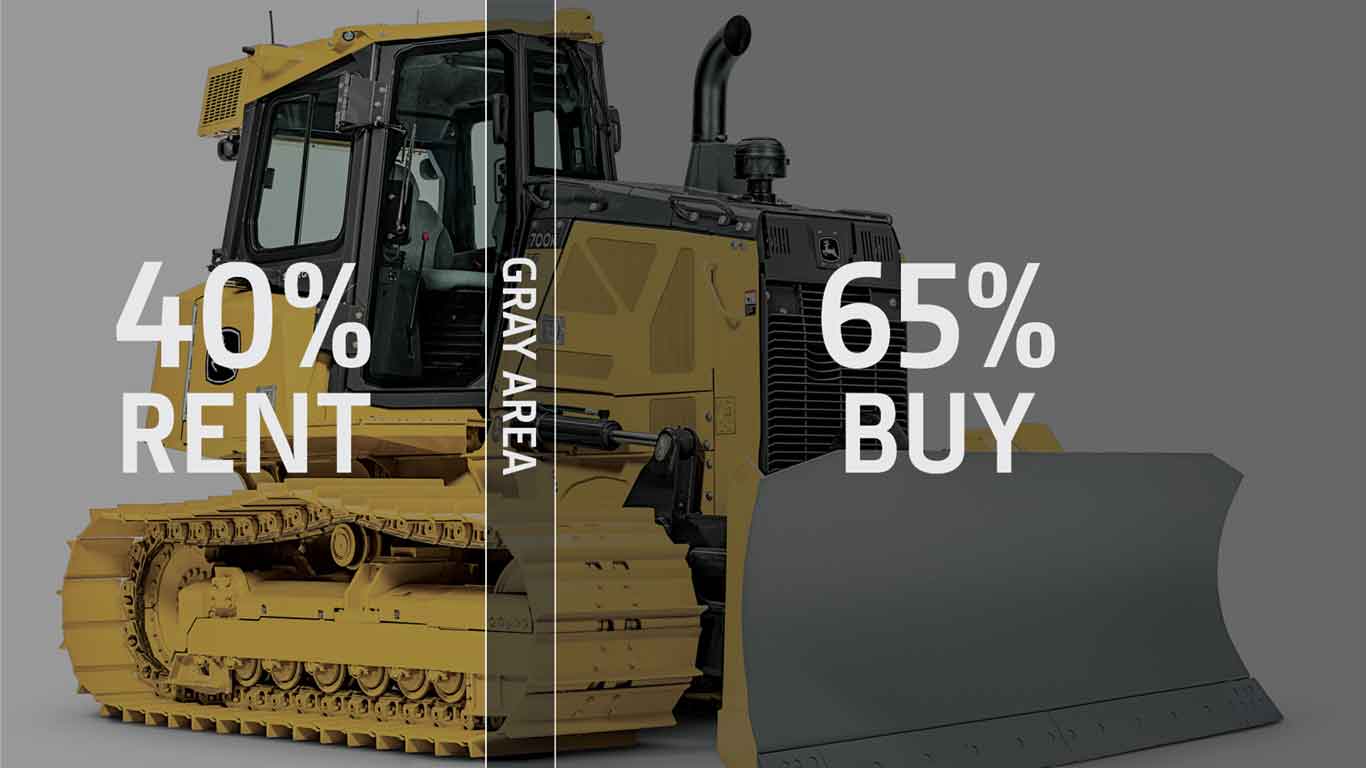

How Utilization Impacts Your Rent or Buy Decision for Construction Equipment

You need to get a piece of construction equipment for an upcoming project. You've done your research and know what machine you're going to get. Now, you just need to decide whether you're going to rent, buy, or lease it. During your decision process, you might come across an argument that is based on utilization rate.
Before we go any further, let's establish what is considered the industry standard when it comes to utilization rate.
A machine that operates 22 days per month or 176 hours per month is considered to have a 100% utilization rate.
Now, back to that utilization argument for deciding whether to rent versus buy. It goes like this:

If your utilization will be less than 40 percent, it's almost always going to be better to rent the heavy or compact machine. If it's above 65 percent, owning is the way to go. Everything in between is a gray area where it could go either way based on your specific circumstances.
While it may seem simple, here are some thoughts to consider before holding fast to that straight utilization rule.
Renting isn't always best for less-utilized construction equipment.
Think about a skid steer for a second. This versatile compact machine can be used for many different tasks, but it might not have the highest utilization rate if you're using it mostly to move materials.
Let's say your skid steer has a utilization rate of 20 percent. You could pay $1,500 a month to rent it, or you could buy or lease one and enjoy much lower monthly payments. Plus, due to the lower utilization rate, you could keep the same machine for years since you’re not putting many hours on it each month.
In that scenario, the straight utilization argument doesn't work because you’ll be paying way too much money to rent something you'd be far better off leasing or owning, even if its utilization is below 40 percent.
How many months you use the machine each year might matter more than how many hours.
If you're defining low utilization in the sense that you only use it every so often —maybe only one season out of the year — then the utilization rate argument for renting holds more weight. If, however, you’re planning to use a piece of construction equipment year-round, even if it has a lower utilization rate, it makes much more sense to lease or buy.
You have to ask yourself how your utilization of the machine will be spread through the year. Is it concentrated in just a few months? Get those heavy equipment rental agreements drawn up. If it's spread through the year, it’s worth exploring the idea of leasing or buying the machine.
Have more questions about how your specific machine utilization needs align with the right acquisition strategy? Talk to your dealer today.